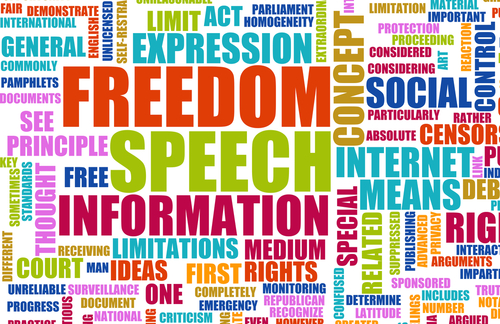A controversial new telecom treaty was not signed by the United States and several other nations this week – as it gives more government control over the Internet.
The new regulations – found in the treaty that was signed by representatives from 89 countries at the UN's International Telecommunication Union (ITU) meeting in Dubai – is not binding on the nations which do not agree to it. These include the United States, the United Kingdom and Canada – some 55 nations in total. Still, it creates a worrisome precedent.
“The U.S. today has announced that it cannot sign the revised regulations in their current form,” Ambassador Terry Kramer was quoted by the news media. “The resolution doesn't have teeth to it. ... At the end of the day, these (agreements) are not legally binding. ... They are much more normative and values-oriented.”
Kramer, like many Internet companies, claim the success of the Internet is due to its independence.

Image via Shutterstock
“All of the benefits and growth of the Internet have come as a result not of government action or of inter-governmental treaty. They are an organic expression of consumer demand and societal needs," Kramer added.
It was reported by FoxNews that the treaty read in part that, “All governments should have an equal role and responsibility for international Internet governance and for ensuring the stability, security and continuity of the existing Internet.” It also called for governments to regulate/prevent spam e-mails. The resolution also called for governments to increase Internet security.
One possible “tax” on the Internet, which would have required Google and other companies to pay in order to display content, was removed from the resolution.
Still, Google was opposed to the terms found in the new agreement. Its online petition against Internet regulations by the U.N. got over three million signatures from the public.
“What is clear ... is that many governments want to increase regulation and censorship of the Internet,” a Google spokesperson told FoxNews.com. “We stand with the countries who refuse to sign this treaty.”
Russia was among the nations calling for increased Internet regulation. Iran, China and several Arab nations were also supportive of increased Internet regulation.
“At the moment each (government) on its territory governs (Internet) resources. ... (Regulation) already exists. We can't stick our hands in the sand like an ostrich and say we don't know what the Internet is,” a Russian representative stated on Wednesday.
“The lack of a single, unified agreement may mean the “Internet will work very differently in different regions,” Reuters said.
Also, one delegate to the conference, Tariq al-Awadhi, who represented the United Arab Emirates, said the Arab States' delegation was "double-crossed" by the United States and its allies with a compromise.
"Unfortunately, those countries breached the compromise package and destroyed it totally," Awadhi said. "We have given everything and are not getting anything."
Awadhi wanted the treaty to cover VoIP and instant messaging.
Among the countries that did not sign the agreement were those located in Western Europe, Canada, Philippines, Poland, Egypt, Kenya and the Czech Republic. The United States representatives and some of its allies walked out of ITU conference meetings earlier in the week.
“A majority of the ITU member states, including many countries that purportedly support Internet freedom, chose to discard long-standing international consensus to keep the Internet insulated from inter-governmental regulation,” Robert McDowell, a commissioner at the U.S. FCC, said. “By agreeing to broaden the scope of the ITU’s rules to include the Internet, encompassing its operations and content, these nations have radically undermined the highly successful, private sector, non-governmental, multi-stakeholder model of Internet governance.”
"My delegation came to work for revised international telecommunication regulations, but not at any cost,” Simon Towler, the head of the UK delegation, said. “We prefer no resolution on the Internet at all, and I'm extremely concerned that the language just adopted opens the possibility of Internet and content issues."
The current treaty that governs the Internet communications was last updated in 1988.
Edited by
Brooke Neuman